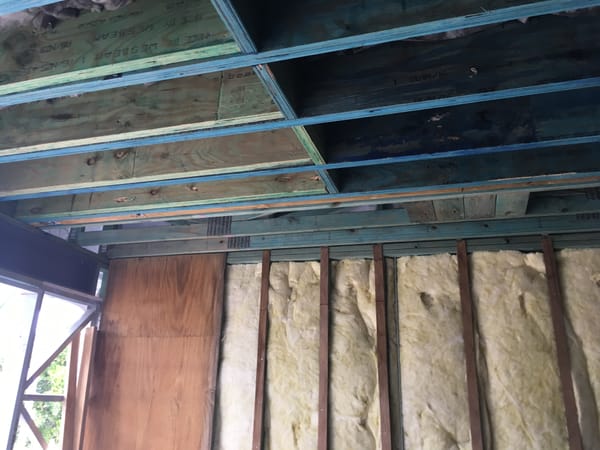Ever wondered what it takes to lead complex construction projects and ensure homes are built on time and on budget? As a residential construction manager, it's your job to oversee all aspects of home building from start to finish.
You need to be a master of planning, scheduling, budgeting, and problem-solving. But more than that, you need to inspire and motivate your team to do their best work.
Success in this role comes down to a unique blend of hard and soft skills. You'll be negotiating contracts, ensuring safety compliance, and monitoring progress. But you'll also be resolving conflicts, easing tensions, and keeping everyone focused on the shared goal. It's not an easy job, but for the right person with the right mindset, it can be an incredibly rewarding career.
So what does make a great residential construction manager? Read on to discover the secrets of success that can help you gain the respect of owners, contractors and tradespeople alike. With the right knowledge, experience, communication skills and leadership abilities, you'll be well on your way to managing projects smoothly and delivering homes that exceed expectations.

Understanding Residential Construction Management
As a residential construction manager, you oversee all aspects of home building projects. It’s a challenging job, but for the right person, it can be extremely rewarding.
Understanding the Role
Your duties are far-reaching, from hiring contractors and sourcing materials to ensuring jobs stay on schedule and within budget. You'll coordinate with homeowners, architects, and tradesmen daily. Strong communication and organisational skills are must-haves.
A big part of the role is managing the budget and timeline. You'll create detailed schedules, purchase orders, and cost estimates, then monitor them closely. If there are any delays or cost overruns, you implement solutions quickly. You should be adept with spreadsheets, project management software, and accounting principles.
Of course, you also need extensive knowledge of residential construction, building codes, and safety standards. You'll oversee everything from laying foundations to installing roofs, so you have to understand proper techniques and legal requirements.
The Keys to Success
To thrive as a residential construction manager, you need patience, problem-solving skills, and the ability to make difficult decisions under pressure. Homeowners will look to you to resolve any issues, so you must remain calm and focused.
Flexibility and adaptability are also important. No two jobs are the same, so you have to adjust plans and timelines based on different home styles, locations, and client needs.
If you’re detail-oriented, organised, and passionate about home building, residential construction management could be a very fulfilling career. You get to oversee projects from start to finish and play an integral role in turning someone’s dream home into a reality.

Key Responsibilities of a Construction Manager
As a residential construction manager, you'll have a lot of responsibility, but the rewards can be great. Your main role is to oversee all aspects of residential building projects and ensure they are completed on time and within budget.
Managing the Schedule and Budget
You'll create detailed schedules for the whole project and timelines for each phase. It's up to you to make sure subcontractors and suppliers stay on schedule. You'll also prepare cost estimates, monitor expenses, and adjust as needed to prevent cost overruns. Staying on top of the schedule and budget requires organisation, problem-solving skills, and the ability to make quick decisions.
Coordinating People and Resources
A big part of the job is managing the many moving parts. You'll hire and coordinate subcontractors, communicate with homeowners, and work with architects, engineers, and permit officials. You need to have a good grasp of building methods and safety standards to properly supervise workers. Strong leadership and communication skills are essential for fostering collaboration and resolving any issues that come up.
Ensuring High Quality and Safety
Your goal is to deliver a high-quality finished product that meets all building codes and safety standards. You'll review plans, inspect work at all stages, and address any problems right away. Homeowners are trusting you to build their dream home, so high ethical standards and a commitment to quality are must-haves for any great residential construction manager.
With so many responsibilities, the job isn't easy, but for the right person, being a residential construction manager can be an incredibly rewarding career. If you're detail-oriented, a good leader, and passionate about building, this could be the job for you.

Skills and Qualities of an Excellent Construction Manager
To be an excellent residential construction manager, you need a combination of technical skills and personal qualities. Some of the key attributes include:
Strong Communication
You'll be communicating with homeowners, subcontractors, inspectors, and your own crew. Explain concepts clearly and listen well to understand needs and concerns. Stay on top of any questions or issues that come up.
Problem-Solving Skills
There are always surprises in construction. Learn to think on your feet and resolve unforeseen problems efficiently. Come up with alternative solutions and determine the best course of action. Stay calm under pressure and help your team do the same.
Organisational Ability
Keeping a residential build on schedule requires meticulous organisation. Create timelines, checklists, and budgets. Coordinate many moving parts including permits, inspections, deliveries, and each trade. Adapt schedules as needed to keep the project running smoothly.
Technical Knowledge
Stay up to date with building codes, safety standards, and new products. Understand structural requirements, specifications, and how all systems in a home work together. Use your knowledge to identify potential issues early on and ensure high quality at every stage.
Leadership
Motivate and direct your team to meet goals and exceed homeowner expectations. Delegate responsibilities, provide clear guidance, and check in regularly on progress. Create a collaborative environment where everyone's input is valued. Praise and reward good work to keep morale and productivity high.
With a combination of technical and interpersonal skills, an effective residential construction manager can turn even the most complex build into a seamless process for homeowners. The ability to communicate, problem-solve, organise, apply your knowledge, and lead teams will set you apart as a manager who delivers excellence on every project.

Overseeing Quality Management for Your New Home Build
As a residential construction manager, overseeing quality management is one of your top responsibilities. You need to ensure that all building standards, codes and specifications are met so the homeowner receives a high-quality finished product.
To effectively manage quality, you should:
- Conduct regular inspections of work in progress. Walk through the construction site at least a couple times each week to check on the workmanship and materials for each trade. Look for any issues that need to be addressed right away.
- Review and approve materials and products before installation. Check that what’s being used matches what’s in the building plans and specifications. Reject anything that does not meet standards.
- Address any problems with subcontractors or crews immediately. If work is not up to par, speak with the foreman or owner of the company to discuss how to remedy the situation. Get them back on track or remove them from the job if problems persist.
- Conduct a thorough frame inspection. Once framing and services are installed but before the gyprock goes up, do a thorough inspection to catch any issues. It’s much easier to fix problems before the walls are covered up.
- Oversee final inspections. Arrange for the necessary inspections by the building department and any third-party inspectors. Be on-site for the inspections to address any issues identified. Obtain final sign-off that the home meets all requirements before occupancy.
- Obtain homeowner sign-off. Conduct a final walk-through with the homeowner to ensure their complete satisfaction before final payment is issued to the contractor. Make sure any last defect list items are addressed promptly.
Keeping a close eye on quality at every stage of the build process is key to delivering a high-quality final product that meets or exceeds the homeowner’s expectations. Diligent management and oversight by the construction manager is essential to success.

How to Choose the Right Construction Manager for Your Project
Choosing the right construction manager for your residential building project is key to its success. Look for the following qualities:
Experience
An experienced construction manager will have overseen many similar projects. Ask about their background and expertise in residential construction. See if they have led projects of a comparable size and scope to yours. Experience is essential for anticipating issues, solving problems efficiently, and keeping the project on schedule.
Strong Communication
A good construction manager communicates clearly and frequently with all parties involved. They should provide regular updates to you, the homeowner, as well as to contractors, suppliers, and workers on site. Look for someone who explains things thoroughly and listens well to understand your needs and priorities. Effective communication helps avoid costly mistakes and delays.
Well-Organised and Detail-Oriented
Residential construction is an intricate process with many moving parts. An organised manager will have a systematic plan for each stage of work and track important details. They oversee scheduling, purchasing, and work crews to make sure nothing slips through the cracks. Strong organisational and time-management skills are vital to keeping a complex build on schedule.
Problem-Solving Ability
Inevitably, challenges will arise during construction. Pick a manager who demonstrates a proactive and solution-focused mindset. They should be able to analyse problems, evaluate options, and implement effective solutions. A good construction manager also stays calm under pressure while resolving any issues. Their problem-solving ability will help minimise disruption and keep your project moving forward.
Trustworthiness
You need to feel confident relying on your construction manager to oversee the build of your home. Look for someone with integrity who treats you, contractors, and workers with fairness and respect. Discuss their approach to managing budgets, timelines, and quality standards to ensure they share your priorities. Trust in your construction manager's competence and judgement is essential for a successful project.
Choosing a construction manager with these qualities will give you the peace of mind that your residential build is in good hands. Their experience, communication, organisation, problem-solving skills, and trustworthiness will help make your project a success.
Conclusion
Construction management is not an easy job, but for those with the right mix of skills and temperament, it can be an incredibly rewarding career. If you're able to effectively communicate, adeptly problem-solve, meticulously organise, and genuinely care about delivering high-quality work, you've got what it takes.
Stay passionate about the work, keep learning and improving your craft, build great relationships, and maintain high standards - do that and you'll go far. The next time you drive by a housing development under construction, think of the construction manager orchestrating that complex project and appreciate the tremendous amount of work that goes into building our communities. They're the unsung heroes transforming empty plots of land into places we call home.







